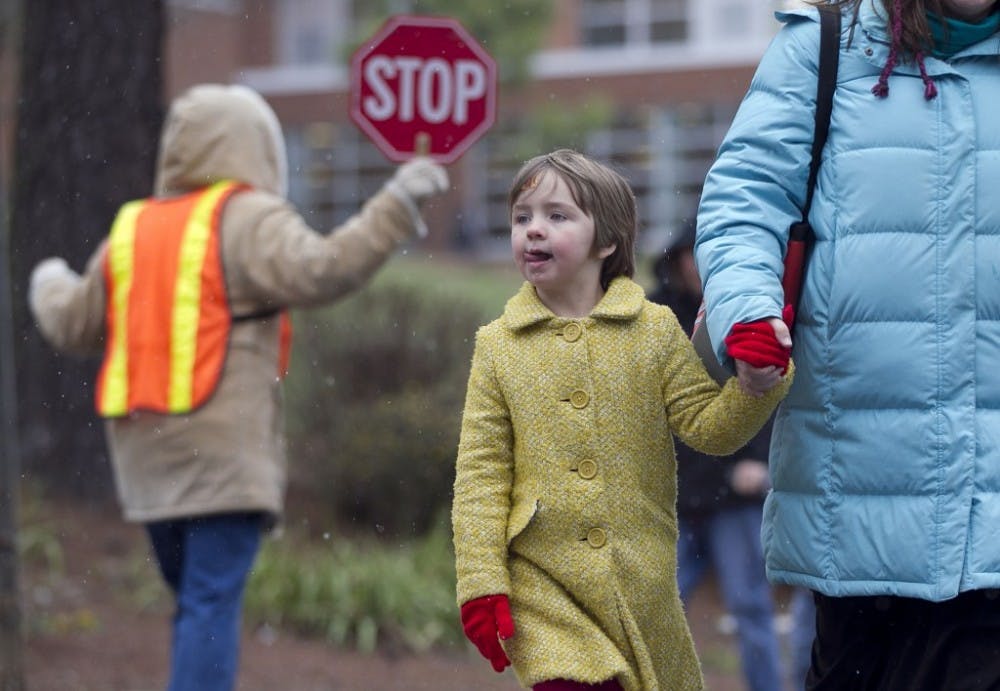After initially being asked by the state to dismiss the case, a North Carolina Superior Court has blocked a new state law that allocates taxpayer money to fund grants for private primary and secondary schools.
The grants, totaling around $10 million in state funds, would have been given to North Carolina families to pay for tuition for private schools, particularly religious private schools. The guidelines for families receiving the grants are that they must qualify near the level for federal free or reduced lunches. These grants would have started for the 2014-2015 school year.
Wake County Superior Court Judge Robert Hobgood ruled Feb. 21 for the plaintiffs — made up of the North Carolina School Boards Association and the North Carolina Association of Educators (NCAE) — who argued that the law violated the state constitution.
“It is the position of the plaintiff that the particular legislation violates the state constitution, namely the public purpose clause,” said Bob Orr, attorney for the school boards association and a former North Carolina Supreme Court justice.
Orr referred to Section 2, Article 5 of the state constitution, saying that taxpayer money must be spent on the “general public good.”
“If the money is going to a private school, how does that meet the general public interest?” Orr asked.
While the grants currently total around $10 million, with a maximum of $4,200 per grant, NCAE General Counsel Ann McColl said the plan is for that program to grow.
“We know that the expectation is that [it] will grow and every year, that will be more money that goes out of the public schools that goes to pay for private education without any real accountability,” McColl said.
According to an April 2013 Gallup Poll, 58 percent of Americans said they would vote for a program to give government-funded vouchers to students for private and religious education.
Jason Husser, associate professor of political science at Elon University, said the poll and legislation show how many Americans feel about public schools.
“There is discontent about public education, and that’s exacerbated whenever there’s a study that says the U.S. lags behind China and India,” Husser said. “So it’s a fairly ripe opportunity for conservative legislators to reform public education while the public has these feelings.”
Husser added that there are particular problems involved when state money goes to grants for religious education. Alongside the state defending the law in court was a family who once had their children enrolled in a religious high school before their financial situation required they switch to public school.
“Money is fungible, so even if it goes to, say, hire a biology teacher, that is money the school now no longer has to spend on that teacher and can pay for further religious endeavors,” he said.
Additionally, parochial schools tend to encourage the retention of childhood religion, although Husser added that it is difficult to know how much of that is selection bias.
Part of the argument in court from the NCAE is that grants are going to private education when funding for public schools in North Carolina is being cut.
“[Those funds] would be a substantial help in our textbooks and resources supplies, which have been cut by about 75 percent in the last couple years,” McColl said. “Professional development used to be funded at $3 million, so that could help fund professional development for teachers, which, right now, has been zeroed out. Another $3 million was the teaching fellows program, which provided a way to get some of our best college students into teaching.”
With other public education reforms in North Carolina in the past year, including an end to teacher tenure and a new system for pay increases that do not include those with more experience, Husser said legislative action on this issue comes in part from some who would like to strengthen private education in the state.
“There’s an organized part of the Republican Party that feels that private schooling can do a better job of educating,” Husser said.
McColl said this outlook fits in with the law the Superior Court judge blocked.
“It has all the appearances of being part of a plan that is devaluing public education and the people that work for public education,” she said.
Applications for the grants opened Feb. 1, with more than 2,000 children in the lottery. The lottery’s winners would have been announced March 3.


